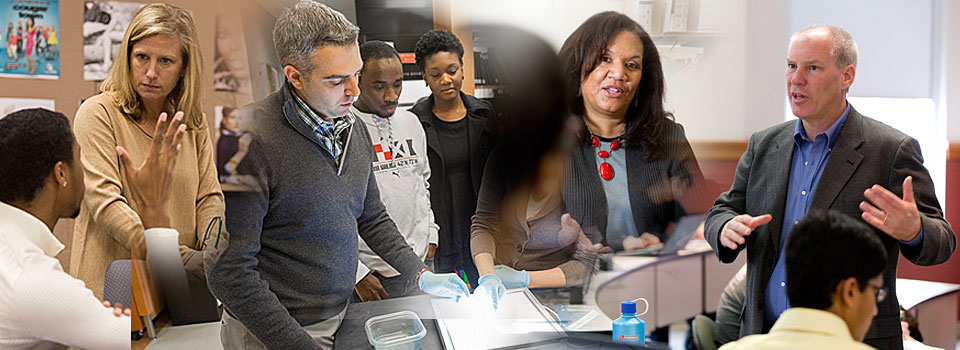Some of the world’s leading scholars are joining the faculty of UGA this fall, and nearly 65 more faculty members in newly created positions are on the way as the result of a series of hiring initiatives.
“Investing in the academic core continues to be the highest priority at the University of Georgia,” said President Jere W. Morehead. “The faculty members hired through these initiatives will positively impact student learning and student success. They also will enhance the institution’s ability to serve the state and to conduct world-changing research in a number of critical fields.”
Last fall, Morehead and Provost Pamela Whitten launched an extraordinary research faculty hiring initiative to recruit internationally recognized scholars to UGA. The ongoing initiative has created four new faculty positions to date. Esther van der Knapp, a pioneer in understanding the molecular genetics of commercially important crops, joins the horticulture department and UGA’s Plant Center this fall.
Pejman Rohani, an expert in the use of computational modeling to predict infectious disease dynamics, has joined the Odum School of Ecology as well as the infectious diseases department in the College of Veterinary Medicine. Eric Harvill, a microbiologist who is one of the world’s foremost experts on the bacteria that cause whooping cough, will join the infectious diseases department in December.
Stephen Trent, who develops next-generation therapeutics and vaccines against a range of bacterial diseases, joined the infectious diseases department last spring as a UGA Foundation Distinguished Professor.
The support of the Georgia Research Alliance has helped bring three new GRA Eminent Scholars-Arthur Edison, Robert Haltiwanger and Ted Ross-to campus, and an interdisciplinary hiring initiative launched in fall 2013 has brought 14 faculty members to campus.
Morehead and Whitten recently announced two new hiring initiatives for the 2015-2016 academic year. An initiative to reduce class sizes by creating more than 300 new course sections will bring a total of 56 new faculty members to campus this year, and up to eight new faculty members with expertise in informatics will be hired to build upon the university’s strengths in this emerging and interdisciplinary field.
Whitten said the continuing focus on hiring helps the university achieve three interrelated goals: enhancing the undergraduate learning experience, elevating the quality of graduate education and strengthening the university’s research enterprise.
She noted that the new faculty members will enable smaller class sizes that, along with the experiential learning requirement approved last academic year, give students the type of personalized and hands-on learning experiences that position them for success after graduation.
In addition, the advances in research and scholarship that new faculty members bring strengthens the university’s contributions to the economic and cultural vitality of Georgia and the world while also attracting graduate students whose skills are in high demand in today’s knowledge economy.
“We have a beautiful campus with state-of-the-art facilities, but our real strength is in our people,” Whitten said. “By investing in world-class faculty, we lay the foundation for impactful research, scholarship and outreach while creating an unmatched learning environment for students.”
